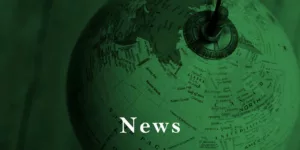Diplomats from the US, UK, Australia and Canada issued a joint statement on Sunday condemning the recent detention of opposition activists in Hongkong. In the statement, these nations call on Hongkong and Chinese key leaders to “respect the legally guaranteed rights and freedoms of the people of Hong Kong without fear of arrest and detention.” Last week, around 55 demonstrators were apprehended for participating in unofficial election primaries for legislative elections in 2020, which according to Hongkong officials, was a violation of the new national security law. Aside from the pro-democracy activists arrested last week were former lawmakers and an American Human Rights lawyer.
New York Post: The US joined Australia, the UK and Canada on Sunday in condemning the recent arrest of dozens of pro-democracy activists in Hong Kong

New York Post disclosed that fifty-five people — including American human rights lawyer John Clancey — were rounded up last week for participating in unofficial election primaries for legislative elections, in violation of a Chinese law aimed at tamping down dissent in semi-autonomous Hong Kong.
US Secretary of State Mike Pompeo and his counterparts at the three other nations mentioned in a joint letter issued Sunday that “it is clear the National Security Law is being used to eliminate dissent and opposing political views.”
Hong Kong’s government fired back with a statement of its own, defending the application of the law.
Those arrested under the law have not been formally charged, and almost all have been freed without bail.
The Hill: All but three have been released on bail

In a similar report from The Hill, it revealed that Hong Kong officials announced about 55 arrests last week, the largest mass arrest since China imposed the new national security edict in 2020. All but three have been released on bail.
Pompeo separately announced this weekend that the U.S. will remove diplomatic restrictions on relation with Taiwan, previously in place as a concession to Beijing, which considers the island Chinese territory.
Western diplomats have called the national security law one of the Chinese government’s most explicit moves to erode Hong Kong’s autonomy since the British government handed over control in 1997 under a “one nation, two systems” rule. It followed protests that lasted for much of 2019 over a since-withdrawn bill that would have allowed the extradition of some suspects to China.








